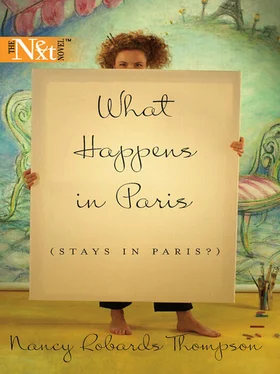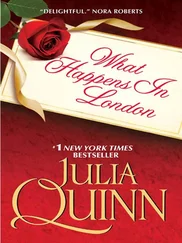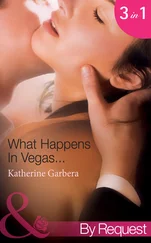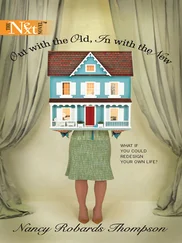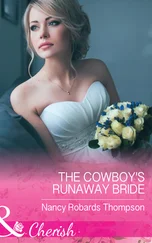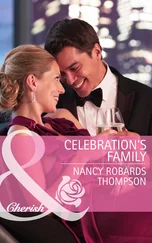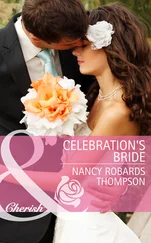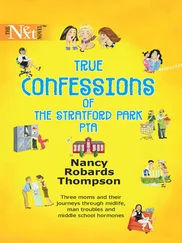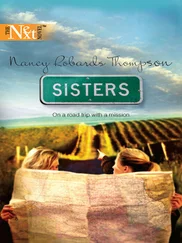It just smacked of an HBO movie: My Best Friend Is My Gay Ex-Husband.
The absurdity really hit me as we sat in the dining room at our usual opposite ends of the long mahogany table. The dinnertime arrangement seemed natural when Ben was at home filling the empty space in the middle. We’d grown so accustomed to our places, when Ben left for college six months earlier, it never occurred to us to change.
To move closer.
Blake was his usual nontalkative self, but it was bizarre sitting there as we had countless times over the years, eating my homemade potato-leek soup, the ominous strains of Wagner filling the silence.
He looked so indifferent sitting there as if he belonged at my table. Sitting there in a clumsy, conversation-free standoff, I thought, This is the man I married, the father of my child, but I might as well have been staring at a stranger. Had he suffered at least a modicum of embarrassment or regret over the scandal? Had he lost clients? Was the thrill worth public humiliation and losing his family?
I was so nonplussed by his nonchalance that I meant to take a bite of soup, but instead the words “How long have you known you’re gay?” rolled from my mouth like a piece of errant chewing gum.
“Annabelle.” His tone was reprimanding, a blend of shock and annoyance, but he looked at me for the first time that evening, his soupspoon poised in midair.
The look on his face made me crazy.
“What? Does the word gay offend you? Do you prefer homosexual or another more veiled term? Tell me, Blake, because I’d like to know something before the rest of metro Orlando finds out.”
His eyes flashed and he glared at me for the span of one deep sigh, before lowering his spoon. “I suppose I’ve known for quite some time.”
The unflinching touché of words knocked the breath out of me. Reality slammed down between us like a thick sheet of ice. All I could do was stare at him through the surreal haze until he averted his gaze and resumed eating.
Hello? How could he eat at a time like this?
“If you’ve known for quite some time, why didn’t you clue me in?”
He didn’t answer me, but continued spooning soup into his expressionless face. I pushed away my bowl, and the creamy contents splashed over the rim. “All along I wrote it off that you were simply a man who was in touch with his feminine side. But you know, now that I think about it, it might as well have been written in big, bold script across the bedroom wall. How could I have not known?”
He shrugged and hunched over his bowl a little more, tuning me out. I had questions, and he was going to answer them. So I raised my voice.
“Living with you all these years, what did that make me, Blake? An idiot? Your beard? A fag hag?” Somewhere through the icy miasma of my anger I saw him set down his spoon.
He cleared his throat. “I thought we could discuss this like rational adults, but apparently we can’t.” He dabbed the corners of his mouth with his napkin. “I’ll have my attorney contact yours. But in the meantime, I thought you should know so you can start making plans. We’re going to have to sell the house or you’ll have to buy me out.”
“Talk to my attorney.” Don’t have one yet. “I don’t want to move and I shouldn’t have to buy you out, either. My standard of living should not change because your lifestyle did.”
His chair didn’t make a sound as he pushed away from the table and stood. He hesitated for a moment. I saw his throat work in a swallow as his long, manicured fingers worried a button on his shirt. I fully expected him to say something. Instead, he turned and walked out.
A dull ache spread through me as I watched the tall, slim man I’d tried so desperately to make love me disappear into the other room.
A few minutes later or maybe it was a few hours later—who knows how long I sat there contemplating the ruins of our life—I heard the back door slam open.
“What the hell happened to my orchids?”
Saturday, as I painted the finishing touches on a still life of foxgloves, Rita appeared in the doorway of my studio clutching her camera.
It was still hot outside—so much for the weatherman’s promise. The heady scent of gardenia wafted in, and I thought I heard the lake breeze whispering that relief from the stifling heat was just around the corner.
Be patient.
I was wrong. It wasn’t the breeze or anything remotely so romantic. It was merely the air-conditioning cycling on, its cold blast merging with the muggy outside air.
Rita stepped inside and closed the door before the humidity flooded in and took over. “Ready to shoot?”
She set her Cannon on the counter and stood there with a funny look on her face.
“What?” I said, laying down my brush and wiping cadmium yellow off my hands with a rag. “I recognize that look. You’re up to something.”
She nodded. Smiled.
“Before we get started—” She pulled a split of champagne and two paper cups from her shoulder bag. “I have a surprise for you.”
She set them on the counter, then handed me a plain white envelope.
“What’s this?”
She grinned, nearly dancing. “Open it.”
I did. Suddenly, I was staring at a check for seven hundred and fifty dollars—written to me?
“What’s this for?”
“Your sunflower painting.”
I squinted at her, confused.
“The sunflower painting,” she repeated. “My client loved it. She bought it— Is seven-fifty enough? I guess I should have asked how much you wanted for it. But that seemed like a fair price. If it’s not, I’ll—”
“No, it’s fine. It’s fabulous. I can’t believe you sold my painting.”
With a look of pride on her face, she popped the cork and poured two glasses of bubbly.
She sold my painting.
She sold my painting. As I stared at the dollar amount, I couldn’t fathom someone actually paying money for something I’d created.
Holding the check made me light-headed. This was enough for two months’ studio rent with a little to spare for supplies.
Rita handed me a cup and raised hers. “A toast. To there being more where this came from.”
Nice idea, but I was a realist. I painted for fun. I painted for me. But for seven hundred and fifty dollars I could be commissioned.
Holding her cup, Rita walked to the middle of the room and turned in a slow circle, surveying my new work that lined the wall; in some places they were stacked four and six canvases deep, starting to overrun the small space.
She whistled. “You’ve been busy since the last time I was here, huh?”
I nodded. Thirty-three new pieces since her last visit.
“It’s amazing how much I can get done when I don’t sleep.”
I set down my cup and shoved an empty plastic soup bowl—lunch from Panera again—into a sack and put it in the garbage as my sister walked over and flipped through a stack of paintings.
I watched her as she studied my work, and wondered what she was thinking. It suddenly seemed a little amateurish producing thirty-three paintings in the span of five days. Some artists agonized over a single painting for twice as long and here I was mass-producing them.
She paused to take in a brilliant pink camellia blossom, flipped past it and pulled out the close-up of the maroon orchid.
“Has Blake picked up his babies yet?”
I rolled my eyes. “He came by Thursday while I was here and whisked them away. The greenhouse is empty.”
She nodded absently and gestured to the canvas. “I really like this. Reminds me of Georgia O’Keeffe.”
My breath hitched. In O’Keeffe’s biography she said, “Most people in the city rush around so, they have no time to look at a flower. I want them to see it whether they want to or not.”
Читать дальше
